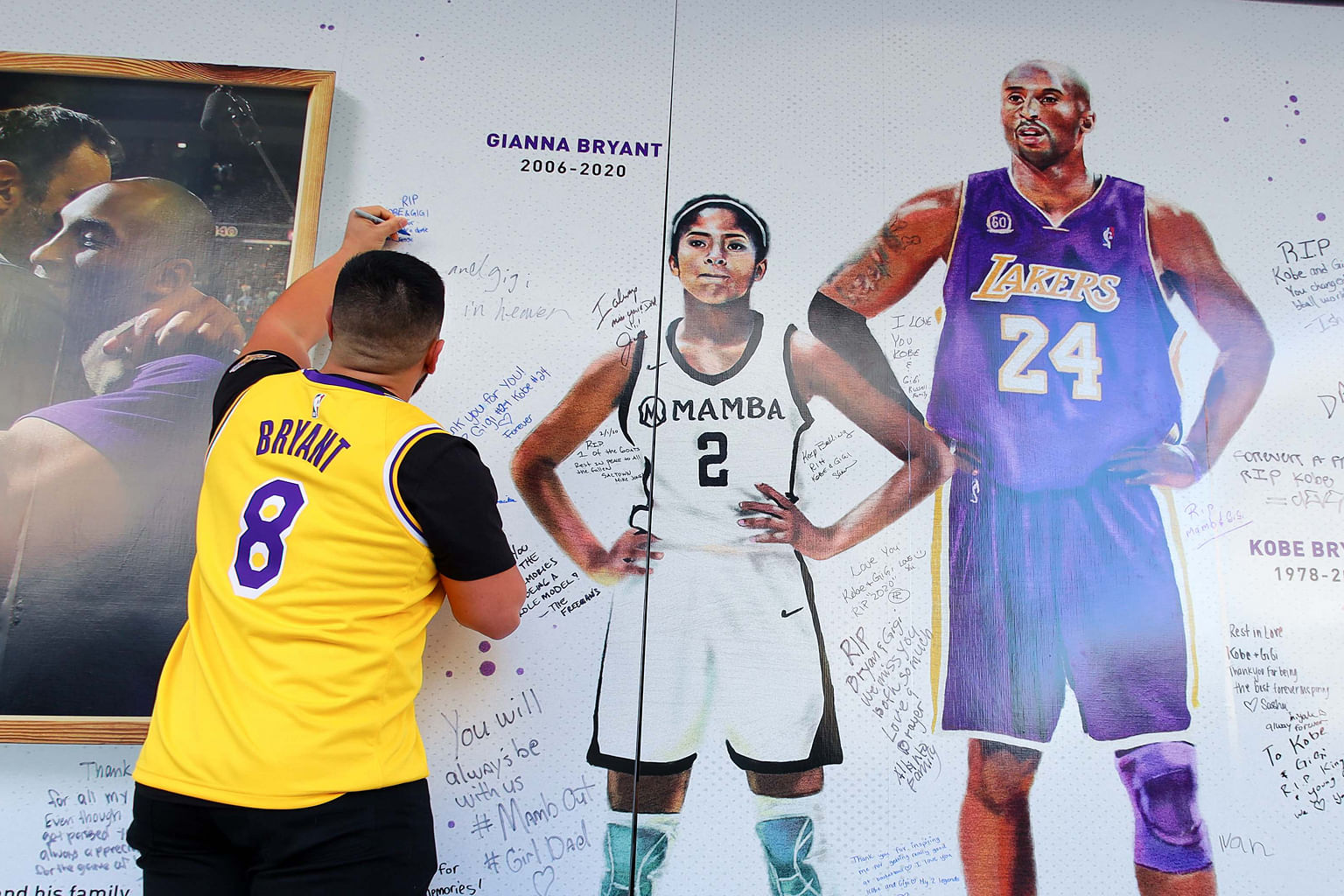I was in a pharmacy in Harlem when I first heard the news. My friend James, who rarely, if ever, talks about sports, had sent me a one-word text message: "Kobe?"
"Kobe what?" He said people were saying that Kobe Bryant had died. I shrugged it off. I figured it was just a false alarm or a joke. But then I asked myself: "Why would he joke about Kobe dying?"
Kobe had come into the league just in time to step into the gap created when Michael Jordan retired in 1999.
Growing up, I wasn't a Jordan fan. Year after year, it was the same thing. Every June, announcers would utter the same eight words: "The Chicago Bulls are the 19-- NBA champions." Just insert the year.
At some point after the 1996 Finals, when the Bulls dominated a talented Seattle SuperSonics team and Jordan won his fourth title, I conceded: I don't like this guy, but he's surely the best I've ever seen.
During his playing career, the heirs apparent were many but none ever quite panned out. Kendall Gill, Jerry Stackhouse, Harold Miner and so many others didn't live up to the hype. And then came Kobe. The teenager straight out of high school. The National Basketball Association (NBA) couldn't have asked for someone better. Kobe was brand-friendly, cookie cutter, global and he avoided issues of race.
Not only did he mimic Jordan's game but he also borrowed from his playbook in life and the media. He was the natural progression from Jordan. He was the heir.
But I couldn't relate to him. Kobe was a guy who looked like me and was my age but definitely didn't grow up like me. I didn't like him. I was the kid from the hood and I could smell that he was the kid who was not from there at all. His dad had played professional basketball - in Italy. And then he went to a good high school on the outskirts of Philadelphia. He wasn't me.
But as I looked around in Harlem that Sunday, everything had come to a standstill. When I stepped outside onto 125th Street, one of the busiest stretches in New York City, it was as if all of the air had been sucked out of the sky.
It was quiet. Everyone was looking at their phones. People of all races. Tourists. Residents. And the first thing I thought about was how negatively I had been texting about him just a few days earlier with my friend Eric.
"Isn't Kobe retired? Why is he always on TV? Can't he just do like most retired players and get out of the spotlight?
"And why does Kobe have an ESPN show that no one watches? No one is that pressed to watch Kobe analyse someone else's game." You name it, I said it.
I recognised his talent, but I just didn't get him as a person. And neither did many other young black men. That's why so many people rooted for the Philadelphia 76ers' Allen Iverson in the 2001 Finals against the Lakers. They saw themselves in the brash Iverson.
But despite all of this, despite all of the critiques, whenever I stepped on a concrete court, I would always try to play like Kobe or Jordan. Love them or hate them, you understood their greatness.
On the day he died, the hurt I felt made me aware of the grip he had on me and his impact on my life, no matter how I may have viewed him.
The air had been sucked out of Harlem; some of the air had been sucked out of me, too.
We wear our sports fandom very close to the chest. When I talk about my favourite team, the San Antonio Spurs, winning titles, I will say: "We have five titles." We.

As fans, we feel like part of the team and as if we should have a say in what athletes do with their lives. When I saw the news that Kobe had died, I wondered how we had gotten here.
Kobe dedicated his life to being better. I'm not going to pretend that I will never again dislike an athlete or talk trash about a player. But what I can do is learn to be better.
And Kobe embodied that: In the end, when we thought he couldn't let basketball go, he did. He found other avenues for his competitiveness. Kobe started realising that no matter how seriously we take sports - we - in the end, it's all just a game.
It's time for some of us to realise that as well.
NYTIMES
